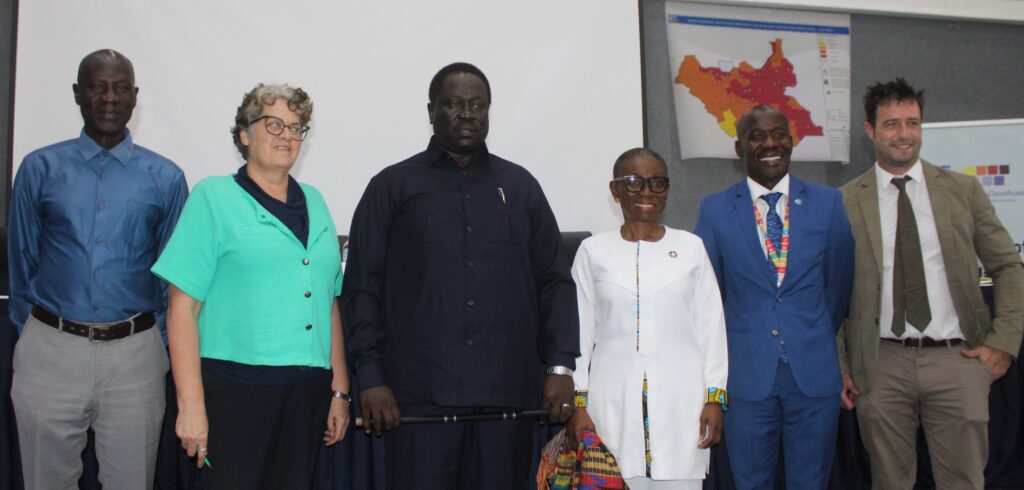At least 83,000 people in South Sudan are on the brink of starvation, while 7.7 million — half the population — will face acute food shortages this year, according to a joint report released Thursday by the government and U.N. agencies.
Three United Nations agencies warned of looming famine in parts of South Sudan torn by conflict. People in 11 of 13 counties in Upper Nile state now face emergency hunger levels, the World Food Program, UNICEF and the Food and Agriculture Organization said.
Upper Nile has seen escalating fighting in recent months between government troops and armed militias opposed to President Salva Kiir’s administration. The clashes have “destroyed homes, disrupted livelihoods and impeded the delivery of humanitarian aid,” the statement said.
The Integrated Food Security Phase Classification (IPC), the leading global measure for hunger crises, declares famine when: 20% of households face extreme food shortages; at least 30% of children suffer acute malnutrition; and two adults or four children per 10,000 people die daily from hunger-related causes.
The latest IPC report, released in Juba today, estimates that 2.4 million people will face emergency food shortages and 5.2 million will be in crisis between April and July 2025. Conflict, low agricultural production, economic instability and climate shocks are key drivers of food insecurity.
During the report’s launch Thursday, FAO South Sudan representative Meshak Malo said 12,000 people in Nasir, 15,000 in Malakal and 10,000 in Ulang will experience acute hunger.
“The population of 83,000 was not there last year but has emerged due to conflict, particularly in Upper Nile and Pibor,” Malo said. He urged collaboration with the government to reduce food insecurity.
Mary-Ellen McGroarty, WFP’s South Sudan director, said 200,000 young children in four Upper Nile counties are at high risk of malnutrition. However, she noted some improvement in areas where stability allowed farming and market recovery.
Anita Kiki Gbeho, the U.N. humanitarian coordinator for South Sudan, called for urgent intervention. “We must act now,” she said, stressing the need for peace to ensure aid effectiveness.
Hussein Abdelbagi Akol, South Sudan’s agriculture minister, pledged government support for farmers to boost production. “We must stabilize our economy to protect citizens from suffering,” he said.
Edmund Yakani, a civil society activist, urged better security and investment in agriculture using non-oil revenue. “Military confrontation only worsens food insecurity,” he said.
Last year’s IPC report projected 7.7 million South Sudanese would face severe hunger between April and July 2024. Radio Tamazuj






